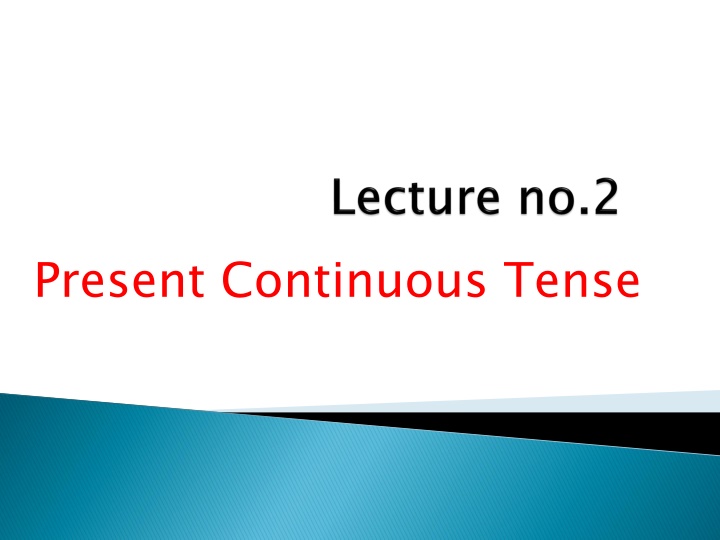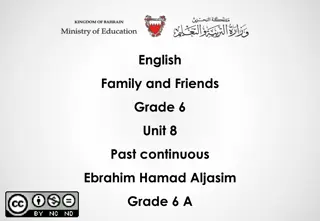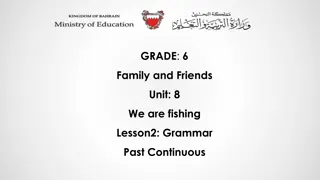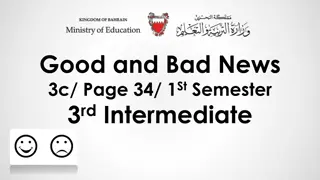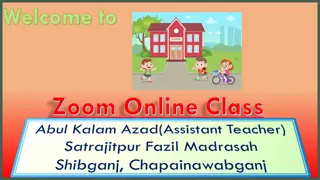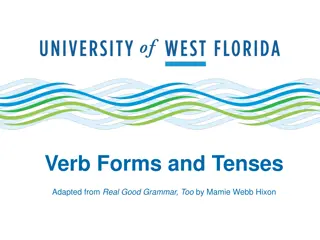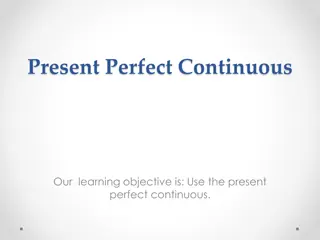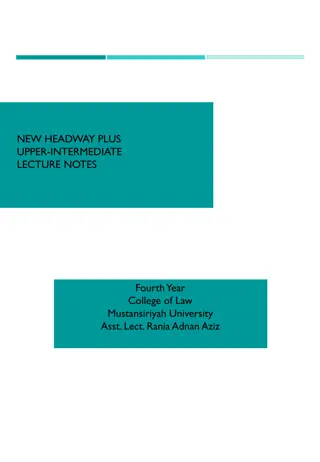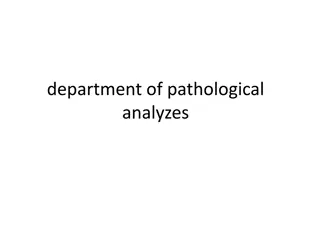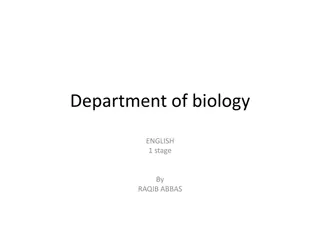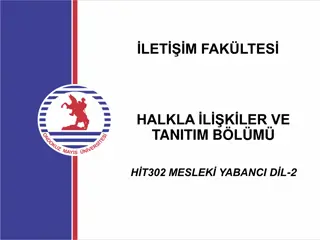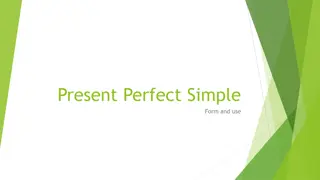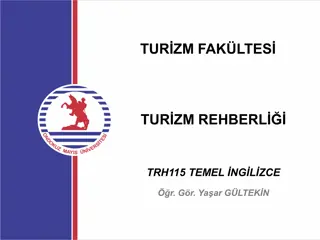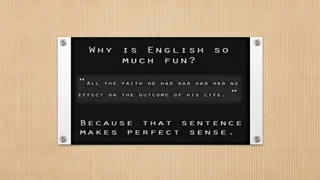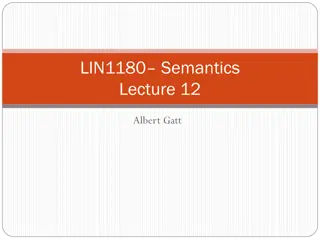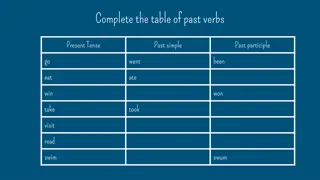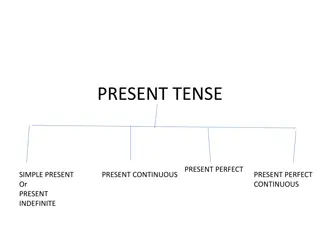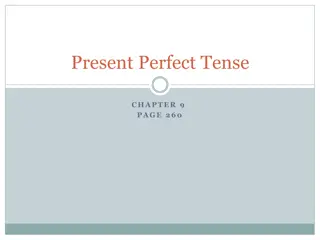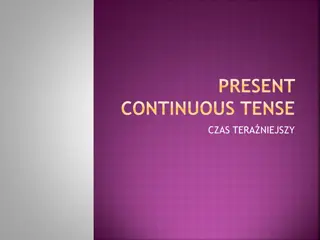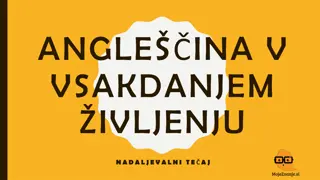Present Continuous Tense Basics
Fundamentals of the Present Continuous Tense with examples and usage. Understand how to form positive and negative sentences, and when to use this tense to describe actions happening now or planned for the future. Enhance your English grammar knowledge effortlessly.
Download Presentation

Please find below an Image/Link to download the presentation.
The content on the website is provided AS IS for your information and personal use only. It may not be sold, licensed, or shared on other websites without obtaining consent from the author.If you encounter any issues during the download, it is possible that the publisher has removed the file from their server.
You are allowed to download the files provided on this website for personal or commercial use, subject to the condition that they are used lawfully. All files are the property of their respective owners.
The content on the website is provided AS IS for your information and personal use only. It may not be sold, licensed, or shared on other websites without obtaining consent from the author.
E N D
Presentation Transcript
Form Am/is/are +-ing (present participle) positive I am working She is working They are working Negative I am not working She isn t working They aren t working Form positive Negative
2 2. .Present continuous Present continuous is used to express: -an They are playing football in the garden. She is working now. Present continuous an activity activity happening happening now now
an now moment I m reading a book about Shakespeare. She university. an activity now ,but moment activity happening ,but perhaps happening around perhaps not around not at at the the is studying math at
a a planned What are you doing? I,m o'clock tomorrow morning. planned future future arrangement arrangement meeting my supervisor at 10
Verbs as (like, think, agree ,understand, love) not activities are only used in present simple. I like coffee. I understand the lesson. She smells a flower fragrant. (like, think, agree ,understand, love) that express states
Vocabulary Words that are used in daily Vocabulary daily life life have wash talk watch have wash talk watch breakfast my to a a film breakfast my hair to my film on hair my friend on Tv friend Tv
have/put clear up disorder) have listen do relax the poster on the wall the mess (dirt or a shower to music my homework on the sofa
make cook send put on a cup of tea a meal email make-up
